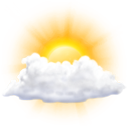
Guest Essay | Lack of health care specialists and infectious disease underreporting
By Denise Andreotti-Phillips, Morgan Bentley, Ryan Lane, Anthony McCallum, Lacey Lynn Sandoval, and Camryn Wellman.
Editor’s note: the authors of this piece are Mel and Enid Zuckerman College of Public Health students at the University of Arizona.
Denise Andreotti-Phillips, Diné, is from Rough Rock, Arizona. She is Mą’ii Deeshgizhnii and born for Tsi’naajinii. Her maternal grandfather is Tséńjíkiní, and her paternal grandfather is Tó’aheedlíinii.
Lacey Lynn Sandoval, Diné, is from St. Michaels, Arizona. She is Áshįįhí and born for Tó’aheedlíinii. Her maternal grandfather is Kinłichíi’nii, and her paternal grandfather is Naakaii Dine’é.
The shortage of healthcare specialists who serve the Navajo people, disease underreporting, and limited access to health care data are interconnected issues that enable a worsening cycle that hinders public health efforts. We are a demographically diverse group of six master of public health students at the University of Arizona writing to raise awareness of these issues and hope to contribute to finding a solution.
In Navajoland, general practitioners are the primary healthcare providers and bear considerable responsibilities. Although they are highly valued and respected, an overreliance on these general practitioners can result in undiagnosed diseases and misdiagnosis of more complex diseases, leading to further underreporting of health conditions and disease cases. Underreporting significantly inhibits the community’s ability to grasp the true scope and extent of health issues, resulting in a critical lack of awareness regarding the prevalence of diseases within the Navajo reservation.
Currently, it is difficult, if not impossible, to locate and analyze public health data from the Navajo Nation Department of Health and the Navajo Epidemiology Center websites, as the information is scarce, dated, or both. The failure to report disease cases and the absence of data allow these issues to go unnoticed and unaddressed, further exacerbating the problem as proper interventions and education are unavailable to communities. These circumstances deprive the Navajo Nation of crucial resources that could enhance health outcomes in the community. This ultimately impacts public health planning and resource allocation when the Navajo Nation is already historically socially vulnerable.
By increasing and promoting awareness about these interconnected issues among all stakeholders within the Navajo community, a comprehensive approach to healthcare that addresses these barriers can be initiated. Thank you for considering our perspective on these critical issues impacting the Navajo people. We look forward to fostering progress toward optimal community health for the Navajo Nation.








 Highway 264,
Highway 264, I-40, WB @ Winslow
I-40, WB @ Winslow